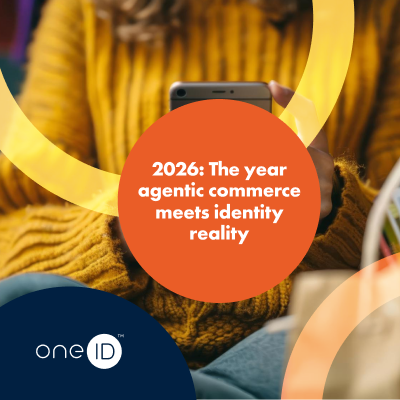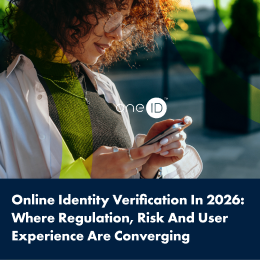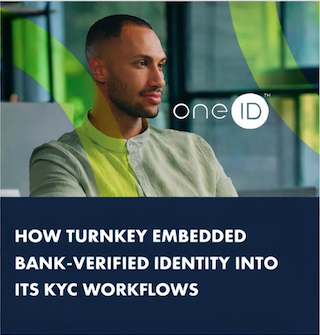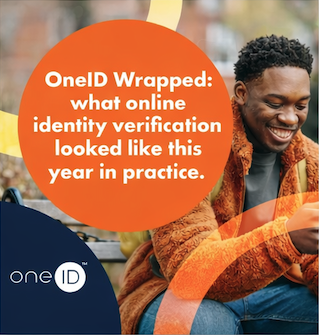Happy New Year to all of our customers and friends. As we begin 2024 we here at oneID® wanted to share our predictions, and why we feel this will be the year that digital ID starts to take hold in the UK. We summarise the key trends below.
As low economic growth, high cost of living, and geopolitical tensions continue, the challenge and imperative of keeping safe online increases
- Fraud reaches an all-time high
- AI and deepfakes become too effective for traditional security measures for ID checks to spot them
- Online safety for children becomes more of a concern
- Election interference from geopolitical unrest increases
Government and regulators enable more effective responses, as legislation and regulation start to tackle online challenges
- The Online Safety Act drives the need for Age Verification (protecting children) and ID&V (e-commerce transactions, fraud prevention) and identifying (and closing) accounts that post illegal or harmful content
- The Data Protection and Digital Information Act will introduce smart data schemes (codes) that enable broader data sharing to benefit the data subjects
- Authorised Push Payment fraud liability will shift between banks in October; we believe that the Online Fraud Charter and the Online Safety Act will drive the further shift needed from banks to platforms to tackle the fraud at source
Individuals and organisations make the case for digital ID
- People want more privacy and awareness of GDPR data rights grows (accuracy, portability, access, consent, data minimisation)
- Digital wallets - payment wallets add identity features (such as Apple/Android)
- Identity wallets add payments and Strong Customer Authentication to protect the account/wallet
- ID becomes reusable (with a 3-5 year timeline before the majority have one), which lessens the need for document scanning
The opportunities presented by digital ID for FSI and business become clear, enabling banks to monetise their £2bn investment in Open Banking via smart data
- In response to the threat of disintermediation from Big Tech and as business customers expect more from their banks, banks start to commercialise digital ID for their customers - using bank data to unlock customer benefits and competitive advantage.
- Businesses move to bank-verified ID to fix issues with high-cost transactions (such as direct debit reinstatement) or those that are vulnerable to fraud (such as payouts, refunds). Better user experience, better data quality and better identity verification increases sales and reduces costs.
- Organisational identity and linked identities (such as corporate role-based verification) slows the growth of impersonation fraud through, for example, Companies House becoming a verifiable data source.
If you'd like to learn more about how OneID® can help your organisation with its digital identity challenges, speak to the team today!



